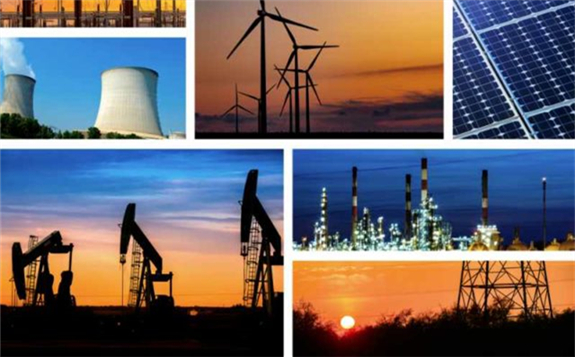The South African government’s newly unveiled Economic Reconstruction and Recovery Plan has energy security at the forefront to rebuild the economy post-COVID-19.

President Cyril Ramaphosa announced details of the long-awaited recovery plan during a joint sitting of the National Council of Provinces and the National Assembly on Thursday.
The South African Economic Reconstruction and Recovery Plan has three phases:
Engage and Preserve – which includes a comprehensive health response to save lives and curb the spread of the pandemic;
Recovery and Reform – which includes interventions to restore the economy while controlling the health risks; and lastly,
Reconstruct and Transform – which entails building a sustainable, resilient and inclusive economy.
In terms of the plan, the following priority interventions will be made:
• Aggressive infrastructure investment;
• Employment orientated strategic localisation, reindustrialisation and export promotion;
• Energy security;
• Support for tourism recovery and growth;
• Gender equality and economic inclusion of women and youth;
• Green economy interventions;
• Mass public employment interventions;
• Strengthening food security; and
• Macro-economic interventions
According to President Ramaphosa, this will be done though the implementation of necessary reforms, removing regulatory barriers that increase costs and create inefficiencies in the economy, securing energy supply, and freeing up digital infrastructure.
“Infrastructure has immense potential to stimulate investment and growth, to develop other economic sectors and create sustainable employment both directly and indirectly,” said the President.
The infrastructure build programme will focus on social infrastructure such as schools, water, sanitation and housing. It will also focus on critical network infrastructure such as ports, roads and rail that are key to economic competitiveness.
Energy security
Specific interventions in the energy sector include:
• Creating a transmission company from a restructured Eskom and facilitating electricity trading;
• Securing and additional 550MW procured by Eskom that will be connected by December 2020;
• Connection of additional 128MW of IPP capacity;
• Connection of Bid Window 4 IPP capacity, 1,338MW between January and June 2021 and 279MW by March 2022;
• Enabling additional capacity through section 34, to unlock 2,000MW;
• Prepare for the nuclear programme at the pace and rate that is affordable;
• Finalise model and partnership for the LNG Import architecture and partnership within 6 months in order to unlock investment and value;
• Enable upstream sector investments, through the finalisation of the Petroleum Resources Development Bill and related fiscal measures;
• Finalise the Bioenergy regulations in the short term;
• Implementing price and market regulatory changes to increase usage of LPG as an alternative energy source for heating and cooking;
• Issuing a request for qualification on the gas to power programme; and
• Enabling generation for own use.
“Through these measures, we aim to achieve sufficient, secure and reliable energy supply within two years,” said Ramaphosa.
Green economy interventions
The pursuit of green industrialisation and a green future is an important intervention not only in addressing the persistent challenges of inequality, poverty and unemployment, but also in offering a sustainable solution to climate vulnerability and driving economic competitiveness.
The plan notes that green industrialisation guarantees the security of energy, food, water and electricity supply. Accordingly, South Africa’s economic reconstruction and recovery effort will include a significant green component. This will help in creating new green jobs, industries and firms.
Critical interventions in the green economy include amongst others the following high impact priority areas:
• Biodiversity economy infrastructure roll out inclusive of protected areas;
• Support for SMMEs and cooperatives to take advantage of opportunities in the green economy;
• Implementation of exclusion applications for 48 sites for ash, gypsum, slag and biomass beneficiation;
• Support for small grower farmers through PPPs in forestry, including in state plantations
• Support for Traditional Authorities Demonstration Project;
• Waste picker integration and revitalisation of buy-back centres;
• Section 18 industry waste management plans; and
• Intermediary solutions for aquaculture products, and revitalisation and upgrade of existing government hatcheries and research centres.